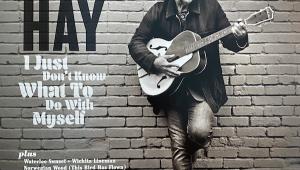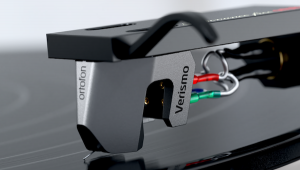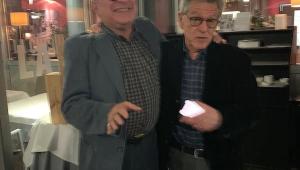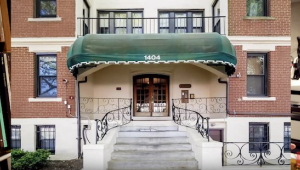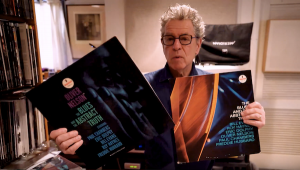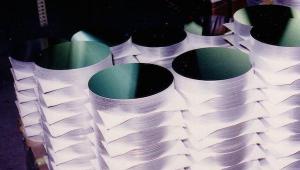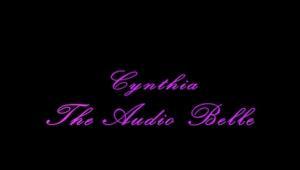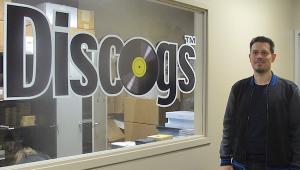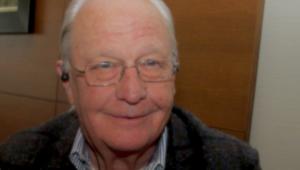Pet Sounds, “The Wayward Wind,” Dwayne Eddy’s “Rebel Rouser" and More
ROSS: Oh, sure. “Good Vibrations.” We did some of Pet Sounds at Gold Star.
FREMER: Really?
ROSS: We did some tracks there. They vocaled elsewhere because they had the sound (they liked elsewhere), but they had their music sound at our place. He (Brian) tried out studios all over town.
FREMER: Because he liked that sound.
ROSS: Phil Spector was – he liked going where Phil was.
FREMER: That’s right, yes, he liked that sound.
ROSS: He liked that sound.
FREMER: Jingle bells and everything. I actually fixed Brian Wilson’s turntable once. When he was at his worst bad scene, a friend of mine was the doctor and he was in charge of medicating him, just bringing the medicine over there, and he wasn’t into music, and he called me up one day, he said you want a goof? You want to go see Brian Wilson – like this is going to be a goof? I said I’d like to meet him but I don’t want to go for a goof. Whatever. He said well, wait ‘til you see what this guy’s like as a – whatever, I don’t – you know. So I went in there and he was like in a big highchair and there were cigarette burns all over and he was smoking cigarettes and he was like – you know. So my friend went in to talk to the nurse and they were talking about what medication and I went in to see him and it was awful. And he says I’m playing some records. Do you want to hear some? I got records. And he takes out his records, and he has these records, and they’re all like not in jackets, and he goes I got blues, I got gospel but I can’t play – my turntable’s broken. I said this could be your lucky day and this could be a thrill for me that I’ll remember for a lifetime. And it was Dual turntable, which I know backwards and forwards. And I pulled it down and all that had happened is the cam had gotten stuck so the arm was like out like this and it wouldn’t – and I freed the cam and it’s a Vaseline lubricant so I got some Vaseline and I lubricated it, and the cantilever was at a 90 degree angle. I said now this could work or I have to come back. And I took a pair of tweezers and I was able to unbend it so it was straight. I turned it on and I said now I’m going to add some music to your life and I got the record and put it on and he started just crying and rocking back and forth with his eyes closed. And to me that these people didn’t know enough to have music for this guy it was sickening to me. But anyway that’s my story but I’m here to interview you, not me.
ROSS: No, no, no, I love Murray Wilson. I got along fine with Murray. Did a lot of work with Murray.
FREMER: Yeah, they didn’t like him so much, though, apparently.
ROSS: But that’s a bunch of horseshit. Pardon me, horse manure.
FREMER: That’s okay, it’s not a problem.
ROSS: I have people who knew Murray like I did and this is just sour grapes. I saw the TV show; they showed the father as being ruthless and he wasn’t ruthless.
FREMER: He didn’t pop his eye out and make him look into the socket?
ROSS: No, as a matter of fact --
FREMER: You never heard that story?
ROSS: He admits otherwise, Brian. He says he was born with a bad ear. He says he didn’t mean (some of the things that were said). I saw the brothers after this thing all broke up. I saw one of the brothers pushing the mother in a wheelchair when she was sick and they were lovely, wonderful people.
FREMER: So, you had this studio for 33 1/3 years. That’s just by accident that happened?
ROSS: Well, it worked out “long playing.”
FREMER: But accidentally..that’s great. That’s great. And all this time you were not really much into audiophilia but you knew what good sound was because you made good sound whether you --
ROSS: That’s exactly it. It’s a feel. This was my hobby that turned into a livelihood. And my partner was an electronics man that it turned into his livelihood.
FREMER: And what did he do in the studio?
ROSS: He built the equipment.
FREMER: He built it and maintained it.
ROSS: We had no choice because we didn’t have the money to buy, so when we had the money, we took the money that came in and started buying.
FREMER: You bought the Ampexes, right. And did you go up to eight tracks?
ROSS: We ended with 24. We ended up with Trident. So that’s a console of 20 (channels).
FREMER: The console, yeah, but it didn’t sound as good as the earlier consoles, probably.
ROSS: Well, it’s not a case of sounding good, it’s everybody became very proficient. Let’s do one thing at a time. Let’s lay down the guitar and get it right. Let’s use four tracks for the guitar.
FREMER: So it wasn’t a musical event anymore. You weren’t recording events. It was at one point you were like recording an event, and then it became a “creation” of something.
ROSS: Yeah, and when I did records like with this “Rhythm of the Rain” by the Cascades, I had fun working with those guys. I put the sound effects in. The record was a hit. Everybody loved this thing because it was fun making it. It was none of this one at a time business.
PHIL CALLAHAN: There’s magic today if you were to play those.
FREMER: Because you were recording an event and when you record events the magic is in the cooperation of the – I mean there’s something to be said for produced things, too, like Sergeant Pepper’s…, but when that becomes a paradigm for everything being recorded that way --
ROSS: Yeah, like “(Oh) Donna” was – you talk about “Donna” and “La Bamba.” “La Bamba” was a throwaway. And I was working with the guitarist, the arranger, Rene Hall, and we decided this is not going to be a throwaway, it’s going to be a good instrumental, and we made it work that way, and Ritchie (Valens) played on it but Rene, Carole Kaye, these are people that made it happen.
FREMER: There aren’t people like that now. Are there people like that now that can do that but they’re just not working?
ROSS: They’re not in the business anymore, I don’t know.
FREMER: Do you miss it?
ROSS: I miss the record business and I would go back in it tomorrow if there was one.
FREMER: Yeah, but there isn’t, really. I mean there’s some indie record labels that are doing – they’re doing what you did in a certain way, and there are some studios in New York that are – like Walter Sear and Sear Sound. I mean they --
ROSS: The closest thing to what I did is a thing called American Idol only because we had the same garbage coming into our place and we tried to make it smell good and we’d doll it up so when it came out it was wonderful. Now it’s on TV and everybody’s watching this, “No, I love American Idol,” I say, hmmmm….
FREMER: But you were the Simon Cowell. You had the microphone. I mean it was a period of time when you started when only a few people, a few entrepreneurs had these facilities, and people came to you like they went to Sam Philips if they were in Memphis or they went to Cameo/Parkway if they were in Philadelphia, and these guys would see these guys, next, next, next, and then a label would come out of that. But you never got a label started.
ROSS: We tried once. We had a group called the Hi-Lo’s, 1955.They were a vocal group. The best vocal group that you can have. They had perfect pitch. Four of the sweetest, most charming…
FREMER: Yeah, I heard of them, sure.
ROSS: We put a lot of money on their stuff. As a matter of fact, their CDs are gorgeous sounding records. It’s out now on CD. Somebody took over [the stuff] but we sold the company in 1957 because we couldn’t handle it. I could not handle a record label and a studio at the same time. One was too demanding.
FREMER: But that would have been the next step.
ROSS: Yes. We did Cliff Arquette’s album “Charlie Weaver Sings.” That was all corn-ball stuff. I said this isn’t working. This isn’t working. It’s not what I want to do. I discovered Gogi Grant at that time. That’s another story I could tell you!
FREMER: “The Wayward Wind.” Was that recorded at your place?
ROSS: No, “Suddenly There’s a Valley.” “Wayward Wind” was done at Sunset Sound because I was too busy.
FREMER: Where?
ROSS: “Suddenly There’s a Valley,” that’s the name of the song.
FREMER: Oh. And then she did --
ROSS: “The Wayward Wind.”
FREMER: Where did she do that? ROSS: At Sunset Sound with Buddy Bregman and the orchestra.
FREMER: I know who Buddy Bregman is. Yeah, that song when I was a kid, that was a really big song.
ROSS: Oh, I loved it.
FREMER: And then I read Neil Young’s autobiography, that was a big song in his life, too. In fact, Prairie Wind, his new album, last album, I think was this – yeah, that song was like -
- ROSS: Neil Young was the most loyal of all the groups that ever stayed with us. He mastered all his Crazy Horse stuff here.
FREMER: Really.
ROSS: Yeah, he did it up at his house and he did stuff that he produced, David Briggs. And we re-mastered all of David and all of Neil’s stuff, and Neil loved us because when Neil was part of the Buffalo Springfield he came to me one day, one night he got beaten up badly. He had all his teeth broken and I took him to the hospital. I took a cab to make sure he had service.
FREMER: Yeah, I read that in his autobiography.
ROSS: He never forgot me for that. And I appreciate that because it’s so easy to forget in this business. FREMER: And he’s into good sound so he knew where the good sound was coming from. (If you look on the inner groove area of Rust Never Sleeps you can see “dg” (Dave Gold) scribed into it).
ROSS: Hey, all I want is a train ride. He owns the train company, Lionel.
FREMER: That’s right. That’s right, he owns that company.
ROSS: Yeah. What else do you want to know?
FREMER: Well, we could probably go on forever with stories because the names keep popping up but -- ROSS: Patience and Prudence, “Tonight You Belong to Me.”
FREMER: Oh. Yeah. You did that one, too?
ROSS: Yeah, “Popsicles, Icicles,” The Murmaids.
FREMER: Wow. Name some other stuff that comes to mind. PHIL CALLAHAN: Stan, isn’t there a story with Duane Eddy and his twang mix?
ROSS: Yeah, I had “Rebel Rouser.”
FREMER: Yes, I remember that.
ROSS: I did that one, “Rebel Rouser.” The guitar was done in Phoenix.
PHIL CALLAHAN: AudioVideo Recorders in Phoenix.
ROSS: With a click track. They sent it to me and we put down all the hand claps and the guitars and the screaming crowds and Goldstar echo chamber…
FREMER: Who played the sax on that?
ROSS: Plas Johnson. Oh no, Steve Douglas. I’m sorry, Steve Douglas.
FREMER: Steve Douglas, I know Steve Douglas. He did stuff for Cameo/Parkway.
ROSS: He’s gone now but Steve was saxophone on that, “20 Miles of Dirt Road.” “Rebel Rouser” was the bigger hit.
PHIL CALLAHAN: They were recorded at AudioVideo recorders in Arizona and –
FREMER: When I was in summer camp that was on the juke-box at my summer camp and it was --
ROSS: That’s all it was, just a guitar with a click.
2nd MAN: And then you made the rest of it.
ROSS: They say that they sent it to Lee Hazelwood and Lee Hazelwood brought it in to me on a 7 ½ (IPS) reel that big.
PHIL CALLAHAN: Wasn’t there a story, you wiring up to a radiator?
ROSS: Oh, that’s – no, no, no, it’s another – Don and Dewey.
PHIL CALLAHAN: Oh, okay, yeah.
ROSS: Don and Dewey came in to do a record, they didn’t have a guitar amplifier so they came in with a tape machine, you know, that Packard-Bell and they plugged in to the input and they overloaded it – you know you’re not supposed to plug in but they plugged the guitar into the wrong input and they got this fuzz. And that was a record.
FREMER: Which record was that?
ROSS: It was Don and Dewey. I forget which one it was. Their first record, I don’t know probably “Jungle Hop.”
FREMER: I’ll be able to look that up.
ROSS: Yeah, Don and Dewey (Don “Sugarcane” Harris, and Dewey Terry). That’s unbelievable.
FREMER: These are great stories and I really appreciate your taking the time to talk about it. I could keep you here for hours but I have to do things because I --
ROSS: I do too.
FREMER: -- because the show is over...
- Log in or register to post comments


